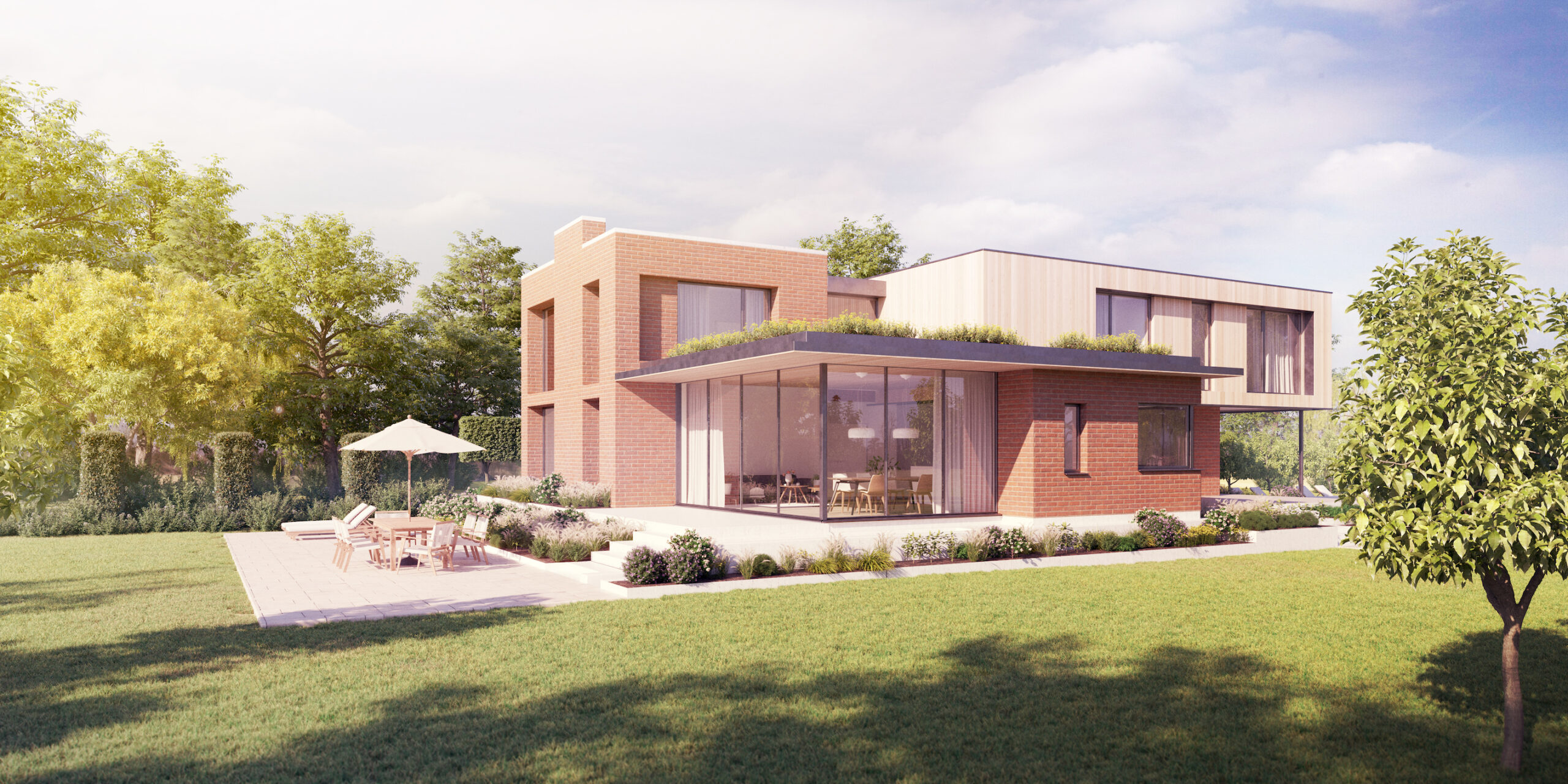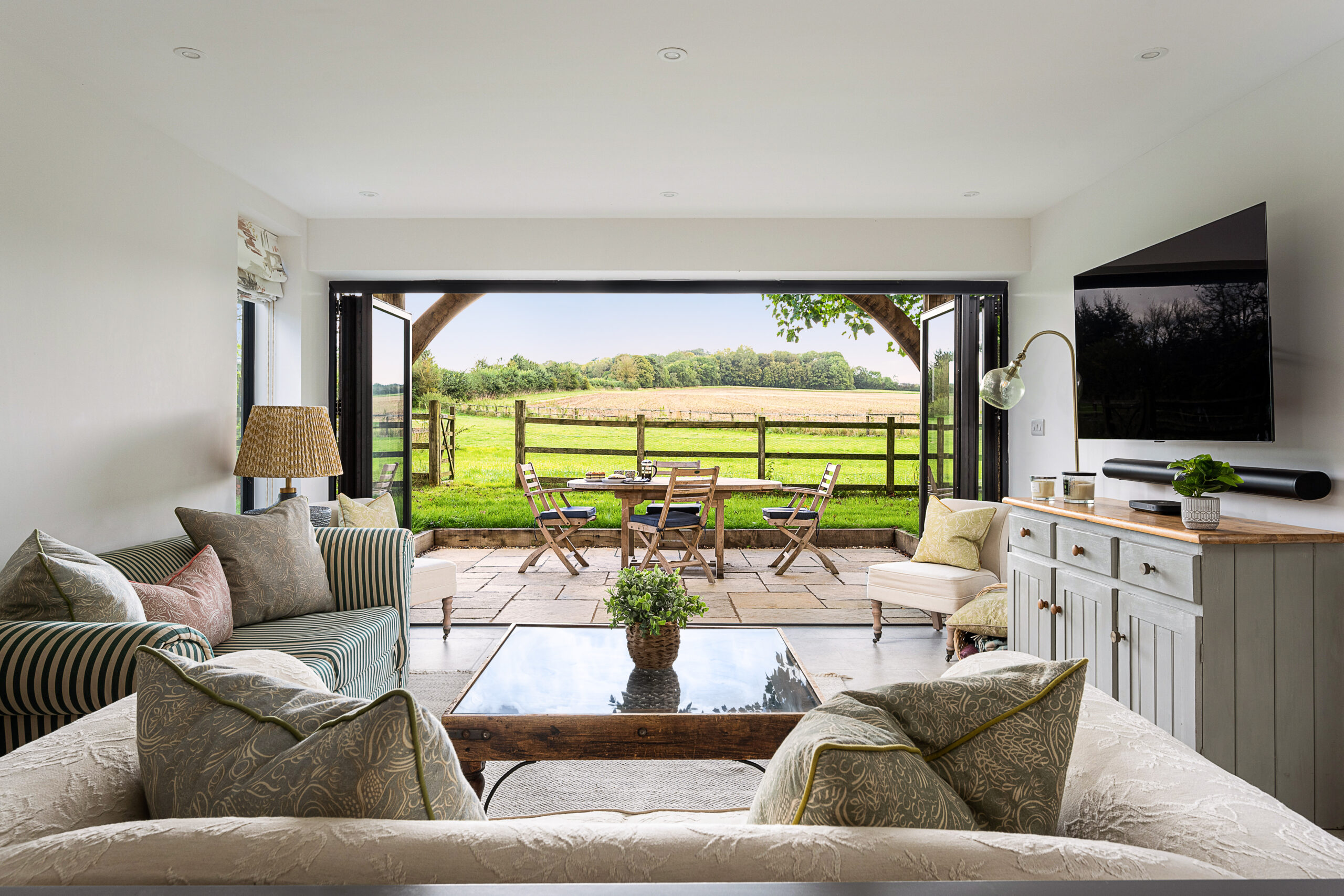From the places we shop to the cars we drive, we are all becoming increasingly conscious of the importance of sustainability in every aspect of our lives. This green approach firmly extends into the property market as more and more people look for ways to make their homes environmentally friendly.
This then raises the question, is it possible to create a home that’s just as functional and stylish as it is sustainable?
In this blog, Founder of Absolute Architecture, Kate Cooper, explains why you should consider embracing the principles of Passivhaus and how it can ensure you enjoy the best of both worlds.
What is Passivhaus?
Passivhaus is a German institution that’s considered to be the gold standard of sustainable design and construction concepts. It was developed over more than 30 years of research and international evidence. Its principles follow a careful design and build methodology and have been developed to create the most energy-efficient homes. Passivhaus puts sustainability at the heart of all decisions from smart material choices to house orientation.
Buildings and homes are responsible for 35% of the world’s total energy consumption. Passivhaus was created to be a solution to this problem by optimising and decarbonising both new and existing buildings.
How does it work?
Passivhaus-accredited properties utilise innovative insulation techniques and ventilation systems to maximise energy efficiency. This means they require less energy to maintain desirable temperatures and can save money in the long run. The homes are also built to be airtight, so homeowners benefit from superior comfort and fewer draughts.
Passivhaus puts sustainability at the heart of all decisions from smart material choices to house orientation. It embraces a ‘fabric first’ approach which aims to:
Maximise air-tightness
Boost home insulation
Enhance solar gain
Optimise natural ventilation
Eliminate cold spots
While it is easier and more affordable to embrace Passivhaus principles when constructing a new home, it is certainly possible to enhance an existing home.
Absolute Architecture is fully Passivhaus-accredited and applies its principles to every project it works on. The team work with clients on new buildings as well as retrofitting both period and mid-century homes to increase sustainability credentials and energy efficiency.
Many clients consult Kate and the team when they are uncertain if they should ‘move or improve’. They act as trusted advisors to their clients on whether it’s possible to create their dream home in the space and budget they have. Starting from scratch isn’t always an option as new build sites can be hard to come by so reimagining an existing property is often the best alternative.
What are the benefits of Passivhaus?
Passivhaus comes with a huge number of benefits for your home from improving energy efficiency to promoting healthier living environments.
All of the benefits are interconnected and work together to offer a better quality of living. They include:
Better building performance
Lower running costs
Comfortable living environment
Lower carbon emissions
Future proof buildings
Optimised for changes in climate across seasons
Effective ventilation

Sustainability with style
So, to return to the question at hand, can a house be both sustainable and stylish? Absolutely. Absolute Architecture are expert in interweaving the sustainable with the beautiful, offering in-house interior design and project management services alongside their Passivhaus accreditation.
They are passionate about the fact that being environmentally friendly does not have to equate to spartan, and Kate can advise you on the right choices to align with your vision. Essentially Passivhaus is a flexible way of designing and building so it doesn’t dictate an ‘eco’ style, internally or externally. Indeed, Absolute Architecture has completed Passivhaus projects that range from super contemporary to ‘farmhouse’ style vernacular designs with beautiful classic interiors designed by their team.
Bradbourne Property Finders work closely with Absolute Architecture to advise clients on how to optimise their homes and see long-term financial and eco benefits. For clients interested in building their own home, finding the correct North/South orientation is of particular value for building in line with the Passivhaus principles, and the Bradbourne team is experienced in meeting this requirement. If you’re interested in finding out more about how the principles of Passivhaus could improve the efficiency of your home or would like to know how Passivhaus could be implemented on a new property, get in touch with us today.
A huge thank you to Kate for partnering with us on this blog. To find out more about Absolute Architecture and what they do, click here.
